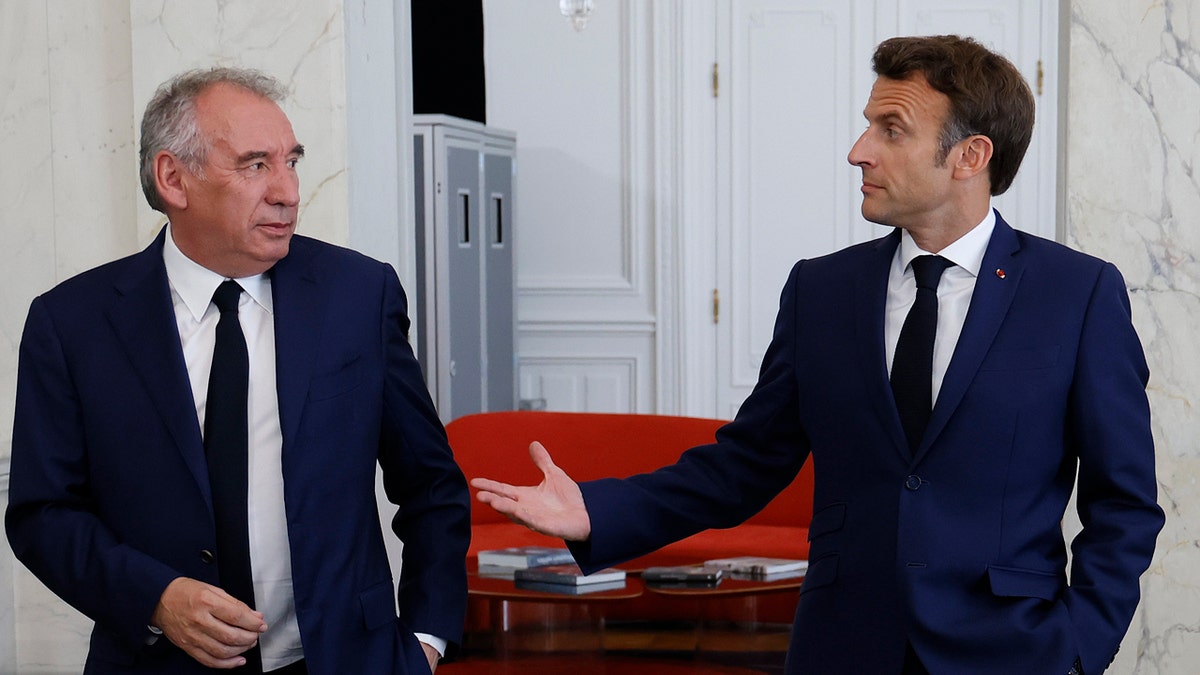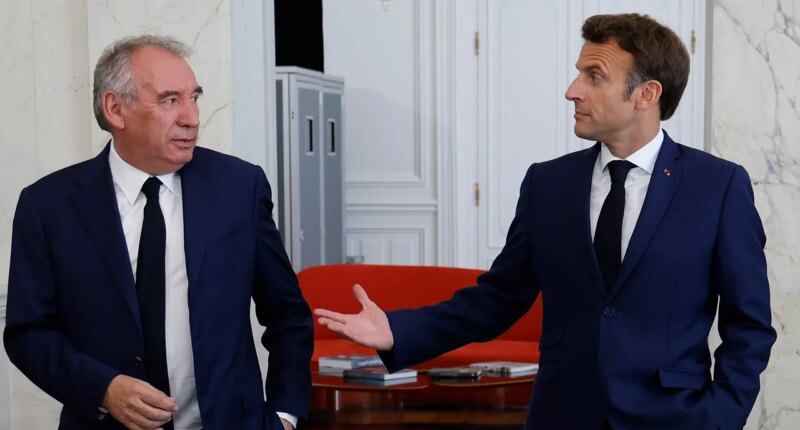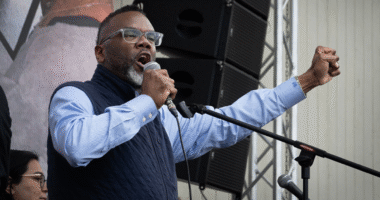-
Last week, Michel Barnier, who used to be the Prime Minister, stepped down after facing a no-confidence vote due to disagreements over the budget in the National Assembly. This situation has left France without a working government.
Macron in an address to the nation vowed to remain in office until his term ends in 2027.
Macron’s centrist alliance does not have a majority in parliament and Bayrou’s Cabinet will need to rely on moderate lawmakers from the left and the right to be able to stay in power. Some conservatives are expected to be part of the new government.

French President Emmanuel Macron, right, meets French centrist party MoDem (Mouvement Democrate) leader François Bayrou at the Elysee Palace in Paris, France, on June 21, 2022. French President Emmanuel Macron named Bayrou as new prime minister on Dec.13 2024. (Ludovic Marin/Pool photo via AP, File)
Macron’s strategy aims at preventing far-right leader Marine Le Pen from holding “make or break” power over the government. Le Pen helped oust Barnier by joining her National Rally party’s forces to the left to pass the no-confidence motion last week.
Bayrou’s appointment is also in line with Macron’s efforts to build a non-aggression pact with the Socialists so that they commit not to vote against the government in any future confidence motion.
Bayrou leads the centrist Democratic Movement, known as MoDem, which he founded in 2007.
In 2017, he supported Macron’s first presidential bid and became a weighty partner in the French president’s centrist alliance.
At the time, he was appointed justice minister, but he quickly resigned from the government amid an investigation into the MoDem’s alleged embezzlement of European Parliament funds.
Bayrou this year was cleared in the case by a Paris court, which found eight other party officials guilty and sentenced the party to pay a fine.
Bayrou became well known to the French public when he was education minister from 1993 to 1997 in a conservative government.
He was three times a candidate for president, in 2002, 2007 and 2012.
Todd Chrisley makes public appearance with newfound confidence following unexpected release after Trump pardon.
Todd Chrisley has been seen in public for the first time following…
- BBC Gossip
- May 30, 2025
France Cracks Down on Smoking in Parks, Beaches, and Other Locations
The French government has implemented a new measure to address smoking in…
- BBC Gossip
- May 30, 2025
Honoring the deputy killed in a Lake County ambush with surviving colleagues
In Lake County, Florida, almost 10 months following a fatal ambush that…
- BBC Gossip
- May 30, 2025
WHAT DID DIDDY DO? A Mystery Witness Haunts the Prosecution – Will They Discover Her Identity?
Celebrity stylist Deonte Nash testified as the defense continued cross-examination in…
- BBC Gossip
- May 30, 2025

















